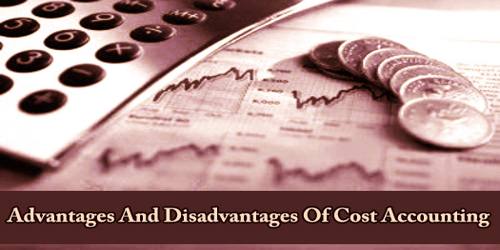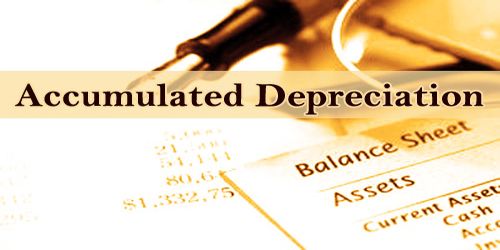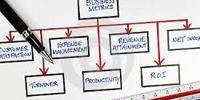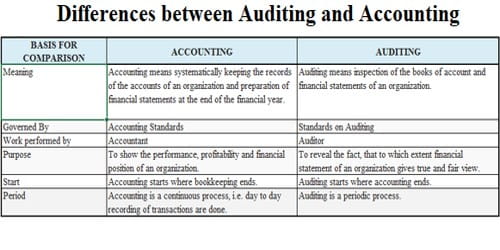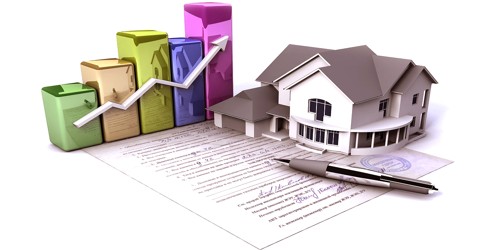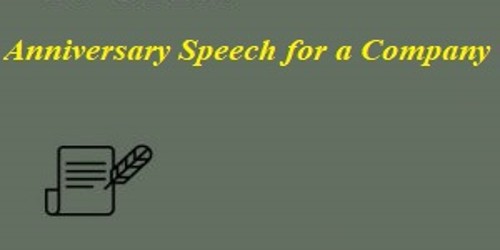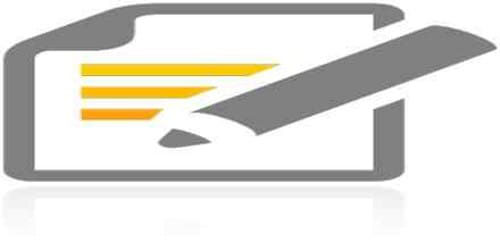The meaning of Cost Accounting can be defined as an accounting system that aspires to capture an enterprise’s costs of manufacturing by evaluating the input costs of each step of manufacturing as well as fixed costs, namely, depreciation of capital equipment. Cost accounting will initially compute and document these costs separately, then analyze input outcomes to output or actual outcomes to assist the enterprise’s management in computing financial accomplishment.
The main task of cost accounting is to arrange records and identify suitable allocation of investment to determine the costs of the goods or services. Present suitable data to control and guide the management, this includes finding out the cost of every shipment, contract, process, service or unit job. It is also related to the cost of selling, production, and distribution. It is the process of assembling and evaluating information to discover how an organization can maximize its earning and utilize funds. There are various advantages of cost accounting, here are the few key advantages of to consider cost accounting:
- Elimination of Wastes, Losses, and Inefficiencies – A good cost accounting system eliminates wastes, losses, and inefficiencies by fixing standards for everything.
- Cost Reduction – New and improved methods of production are followed under the cost accounting system. It leads to cost reduction.
- Identify the reasons for Profit or Loss – A good cost accounting system highlights the reasons for increasing or decreasing profit. If so, the management can take remedial action to maintain the profitability of the concern. There is no possibility of shutting down of any product or process or department.
- Advises on Make or Buy Decision – On the basis of cost information, the management can decide whether to make or buy a product in an open market. The management can rightly choose the best out of many alternatives. Sometimes, spare capacity can be used profitably.
- Price Fixation – The total cost of a product is available in the costing records. It is highly useful for the price fixation of a product.
- Cost Control – Budgets are prepared and standards are fixed under the cost accounting system. The expenses are not permitted beyond the budget amount. The actual performance is compared with the standard to find the variation. If there is any variation, reasons find out and the management can exercise control. Period to period cost comparison also helps cost control.
- Assist the Government – The government can collect reasonable tax from the company and exercise price control.
- Help the Trade Union – Bonus calculation is very easy to the trade union. Reasonable remuneration is also fixed on the basis of cost accounting information.
- Marginal Analysis of Cost – It is done for facilitating short-term decisions especially during the depression period.
- Fixation of Responsibility – Responsibility centers is fixed under the cost accounting system. If responsibility is fixed, it becomes difficult to evade the responsibility of performance and leads to effective performance.
- Helps to Prepare Financial Accounts – The information like the value of closing materials, work in progress and finished goods are necessary to prepare financial accounts. This information is supplied by the costing records and helps to prepare financial accounts without any further delay.
- Prevention of Frauds – Introducing a cost audits can prevent fraud. If so, correct and reliable data was available from the costing records which are highly useful to the government, shareholders, the creditors, and the like.
Disadvantages of Cost Accounting –
Cost accounting is not without drawbacks.
- Costs – The benefits of cost accounting come with a price. Since costing methods differ from organization to organization, it’s not clear how these costs might manifest themselves until a specific firm is examined.
- Complexity – Generally speaking, complex cost accounting systems require a lot of work on the front end, and constant adjustments need to be made for improvements.
- Additional Steps to Verify Accuracy – Even if the rigidity of financial accounting creates some inherent disadvantages, it does remove the uncertainty and misapplication of accounting guidelines of cost accounting. Uncertainty equals risk, which always comes at a cost. This means additional and often more vigorous reconciliation to verify accuracy.
- Reliance on Highly-Skilled Talent – Higher-skilled accountants and auditors are likely to charge more for their services. Employees have to receive extra training and must sufficiently cooperate with data input. Non-cooperation can render ineffective an otherwise beautifully constructed system.
The repeated trade-off in any accounting method is accuracy versus expediency. Cost accounting reflects this more dramatically than other accounting methods because of its pliability. Every business needs to find its own balance between the two.
Costing methods are typically not useful for figuring out tax liabilities, which means that cost accounting can’t provide a complete analysis of a company’s true costs. It’s easy enough to compensate for this by combining financial accounting with cost accounting but it, nevertheless, highlights a flaw in cost accounting.
Information Sources:
